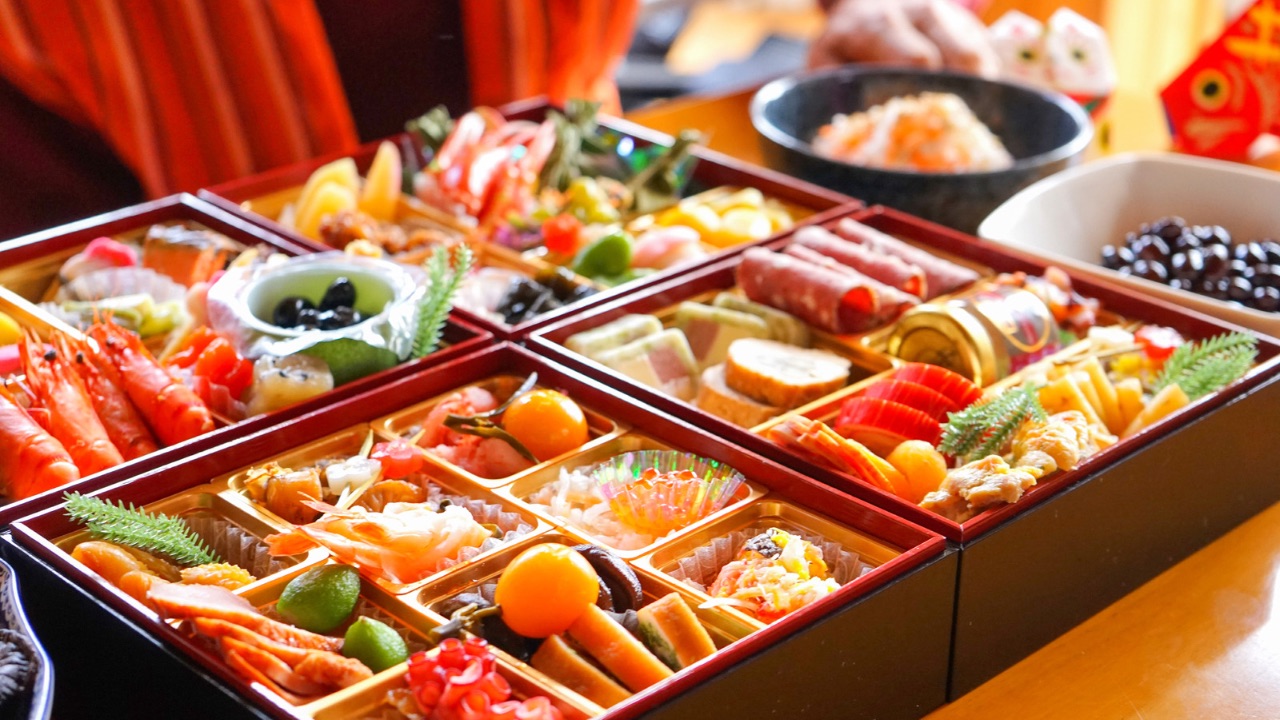
Traditional Japanese New Year Foods
Japanese New Year, or お正月 (Oshoogatsu), is one of the most important celebrations in Japan, marked by family gatherings, traditions, and a feast of symbolic dishes. At the heart of the New Year’s celebration is おせち料理 (Osechi Ryoori), a beautifully arranged assortment of foods, each carrying unique meanings and wishes for the coming year. Let’s explore the rich cultural significance and variety of traditional Japanese New Year foods.
What is Osechi Ryori?
Osechi Ryori refers to a collection of traditional dishes prepared specifically for New Year’s festivities. These dishes are often served in tiered lacquer boxes called 重箱 (jubako), symbolizing layers of happiness and prosperity. The tradition of Osechi dates back over a thousand years and is deeply rooted in Japan’s history, where people would avoid cooking during the first three days of the year to let the gods rest.
Symbolic Foods in Osechi Ryori
Each item in Osechi Ryori holds a specific meaning, often related to health, prosperity, happiness, or long life. Here are some key dishes and their symbolism:
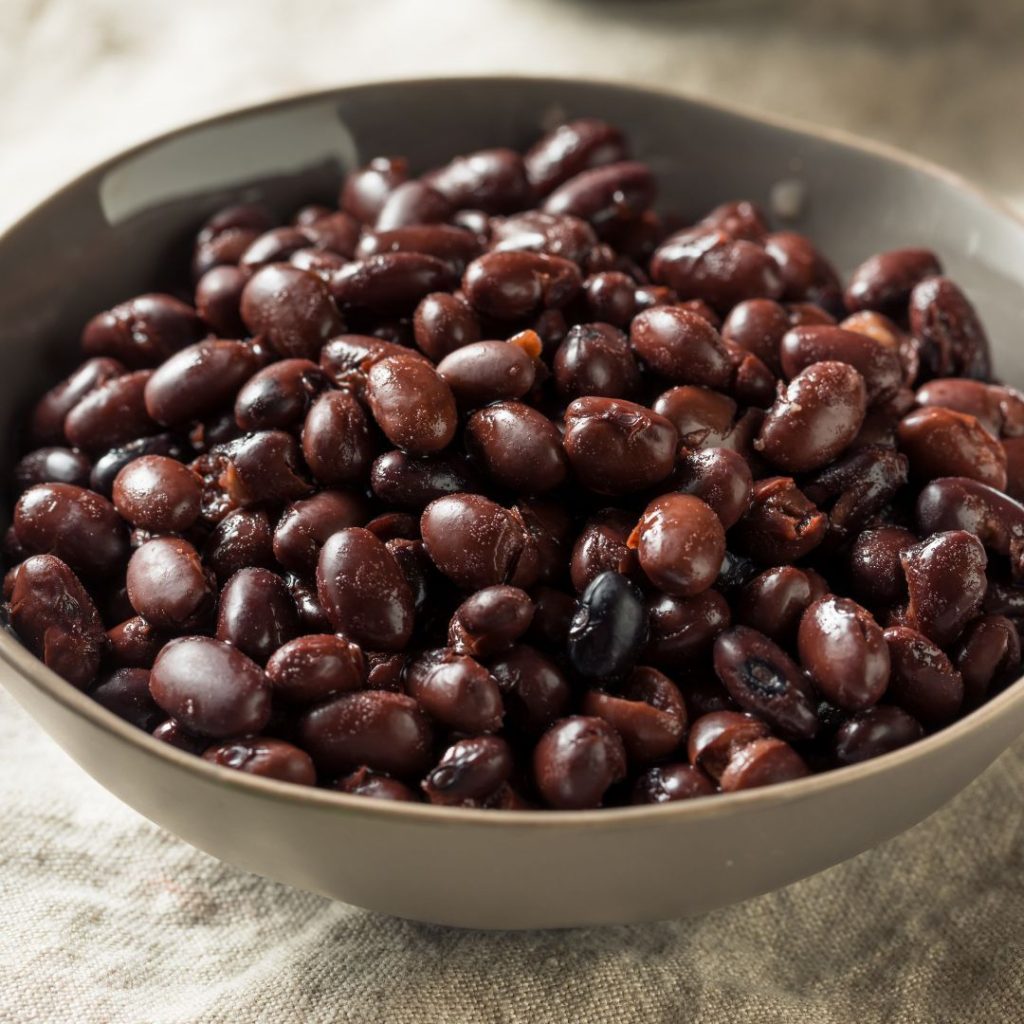
黒豆 (Kuromame) – Sweet Black Soybeans
Represents health and diligence. Eating kuromame is a wish for hard work and good health in the coming year.
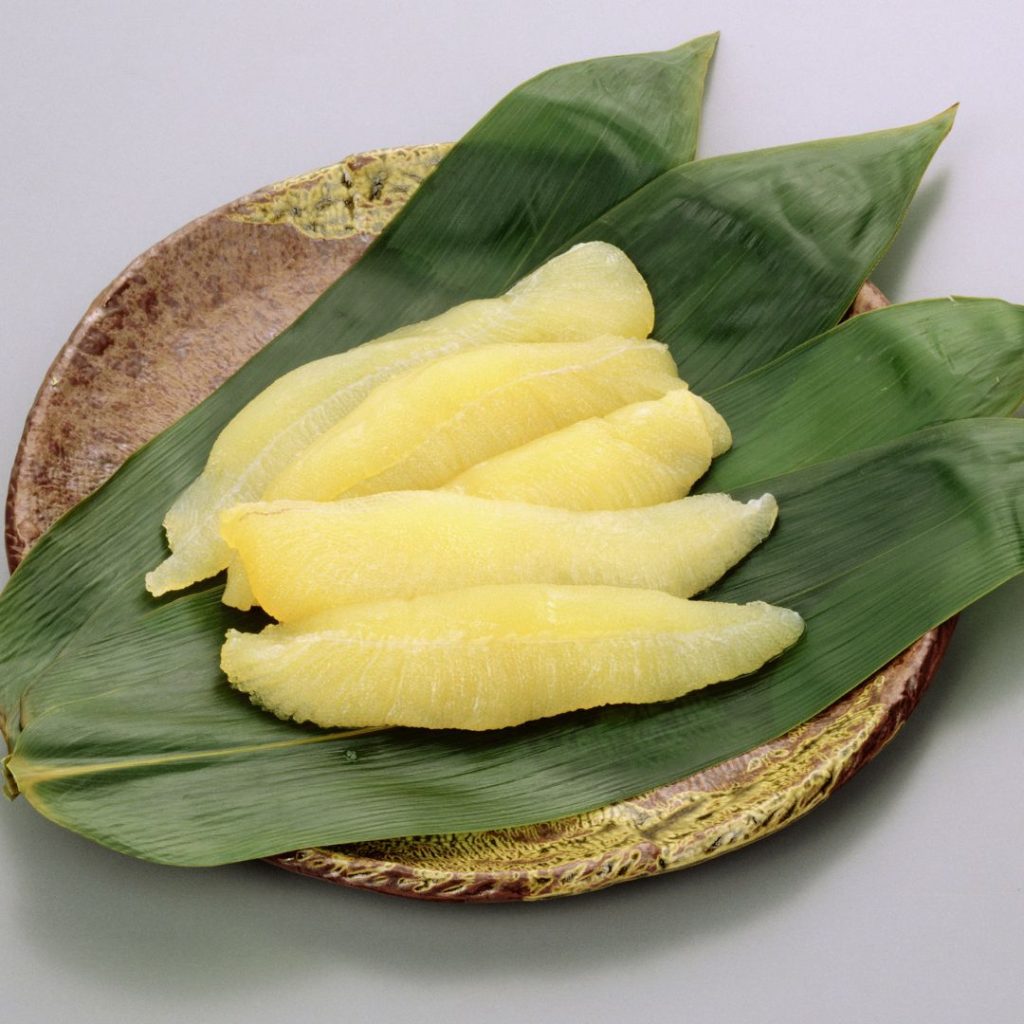
数の子 (Kazunoko) – Herring Roe
Symbolizes fertility and the prosperity of descendants. The many tiny eggs reflect hopes for a fruitful family.
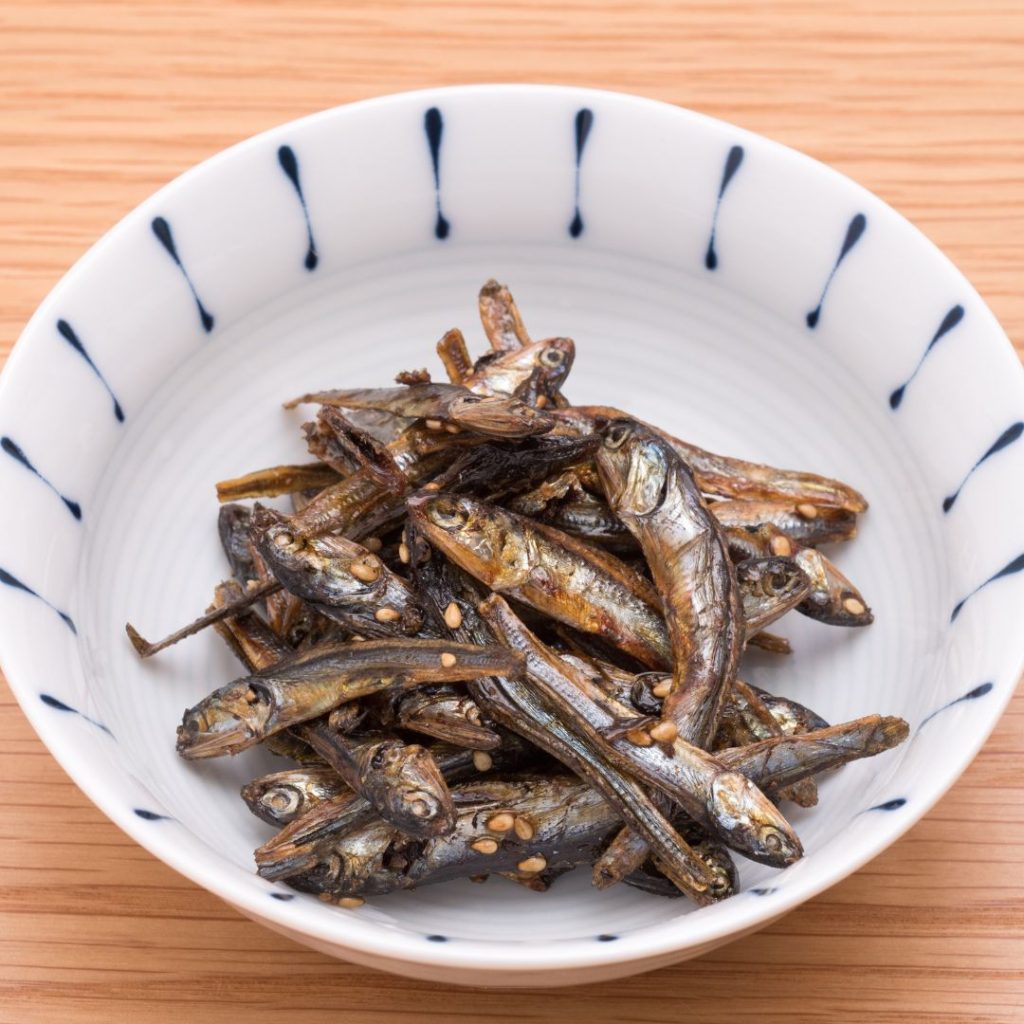
田作り (Tazukuri) – Candied Sardines
A wish for a bountiful harvest, as sardines were once used as fertilizer for rice fields.
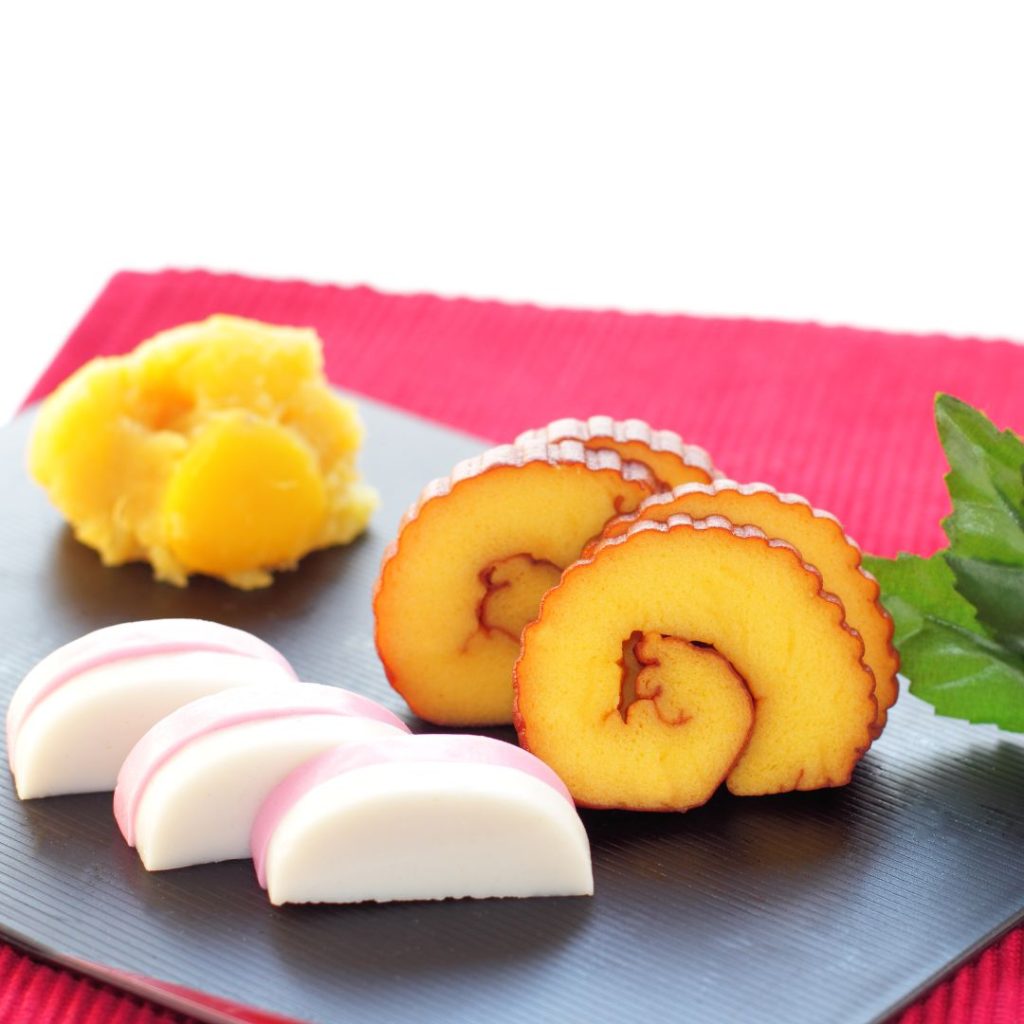
伊達巻 (Datemaki) – Sweet Rolled Omelette
Resembling scrolls, datemaki symbolizes learning and culture.
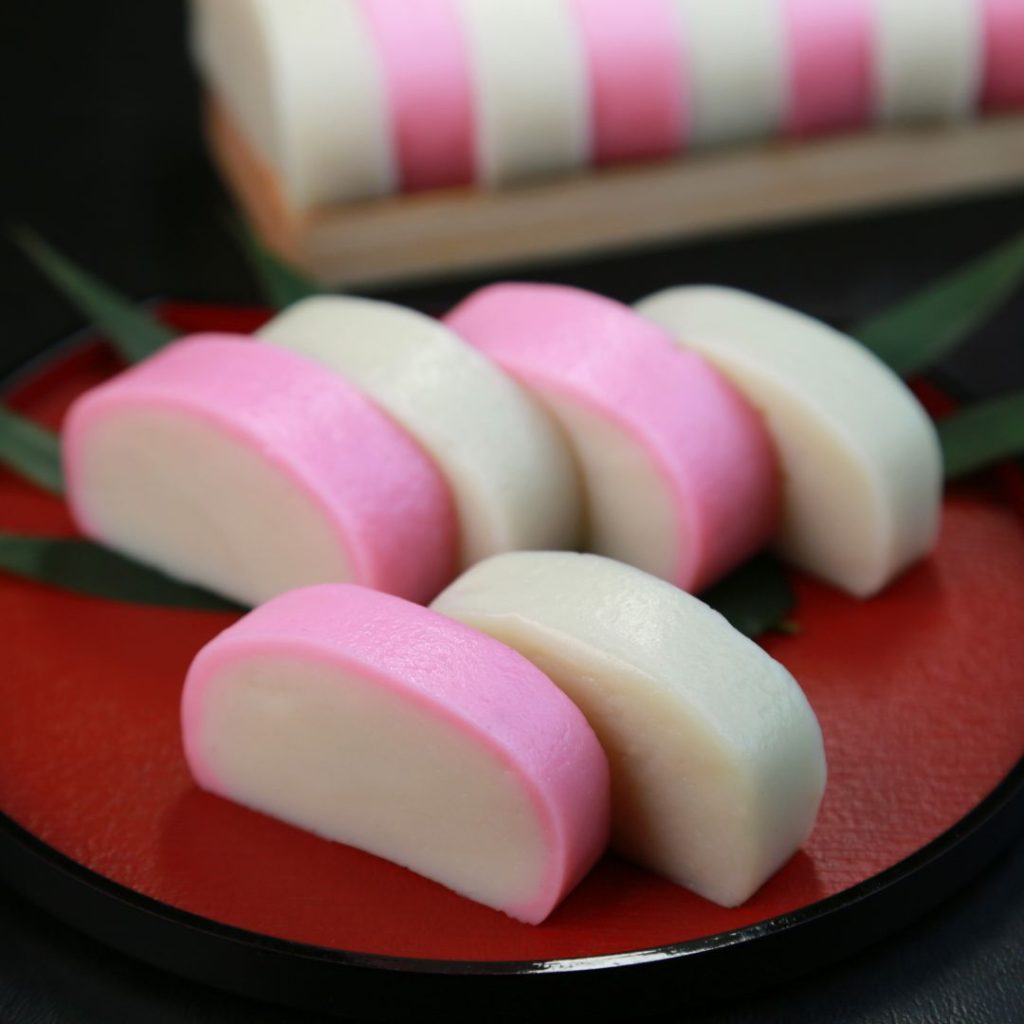
紅白かまぼこ (Koohaku Kamaboko) – Red and White Fish Cake
Red represents protection against evil, and white signifies purity. Together, they bring auspiciousness.
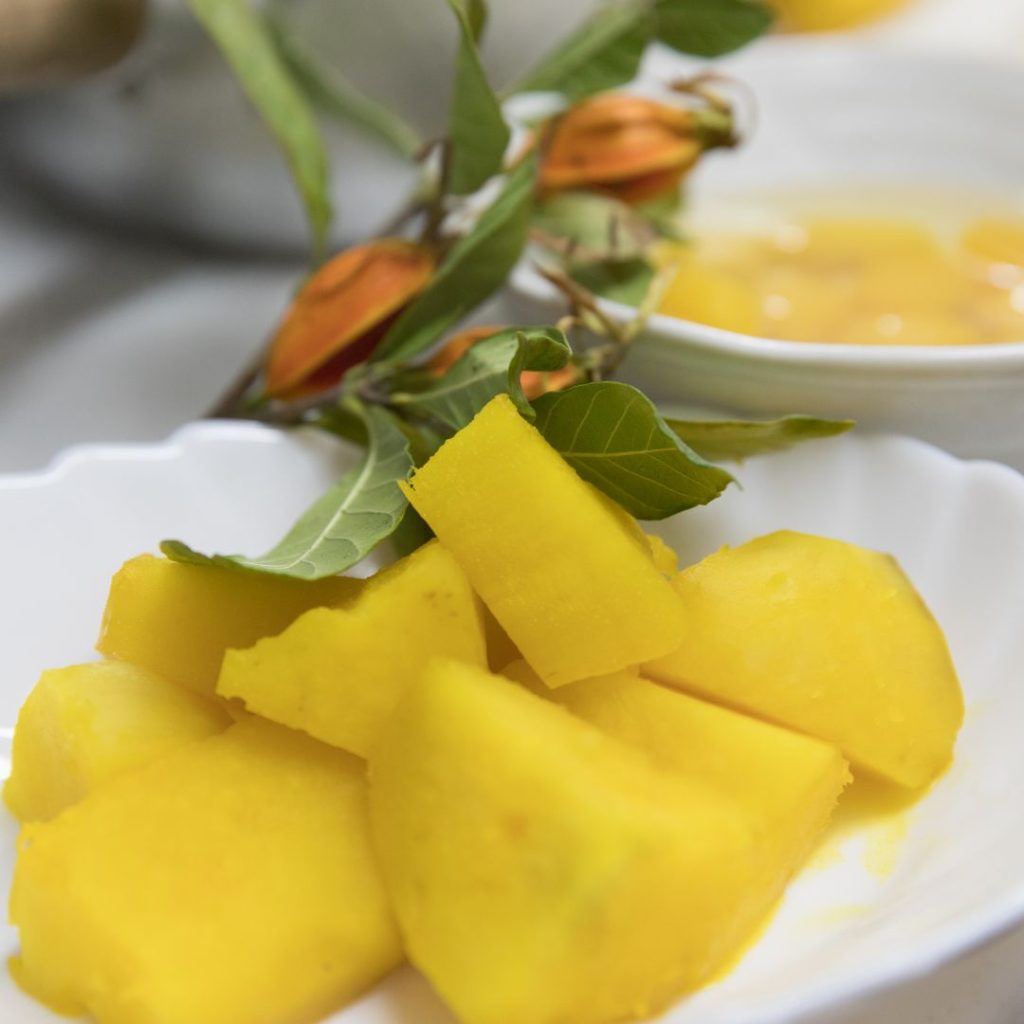
栗きんとん (Kurikinton) – Sweet Chestnut and Sweet Potato
The golden color of kurikinton symbolizes wealth and financial success.
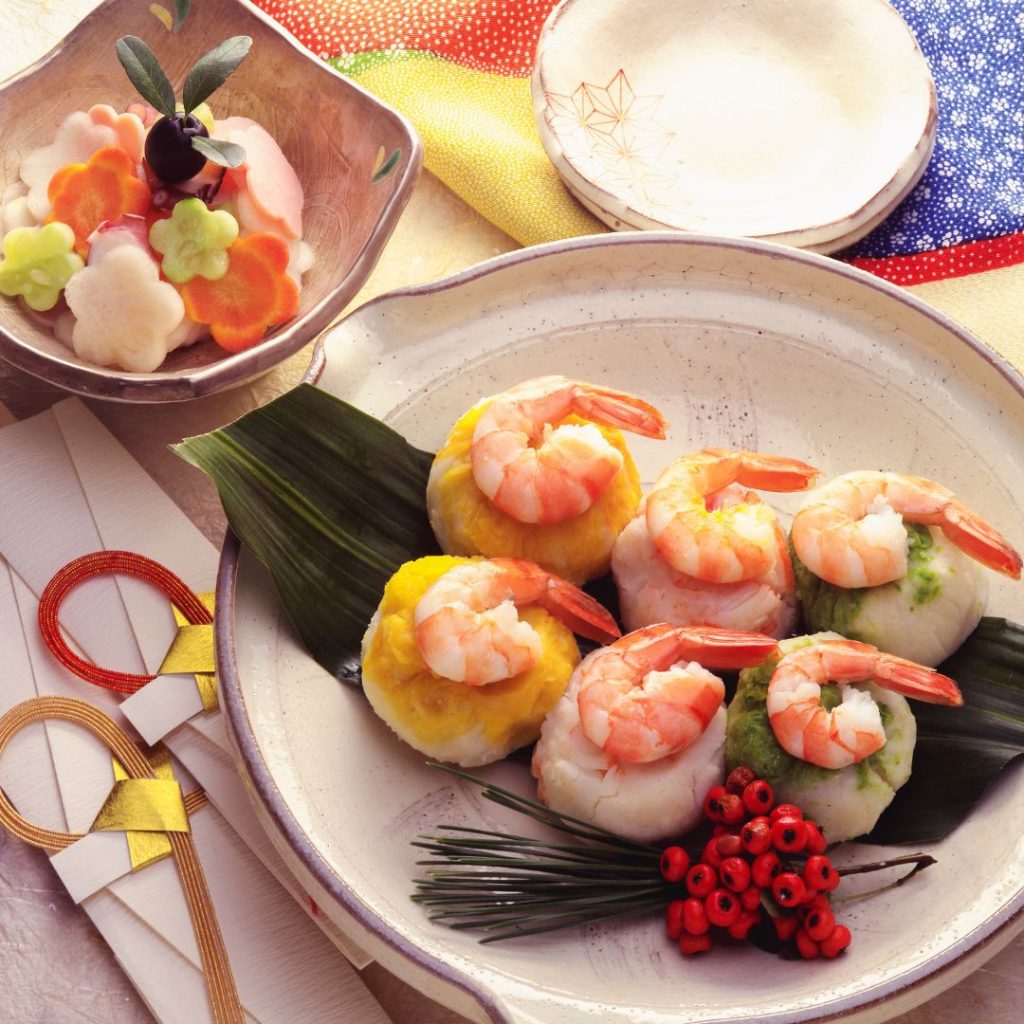
海老 (Ebi) – Shrimp
With its curved shape resembling an elderly person’s back, shrimp represents longevity and a wish for a long life.
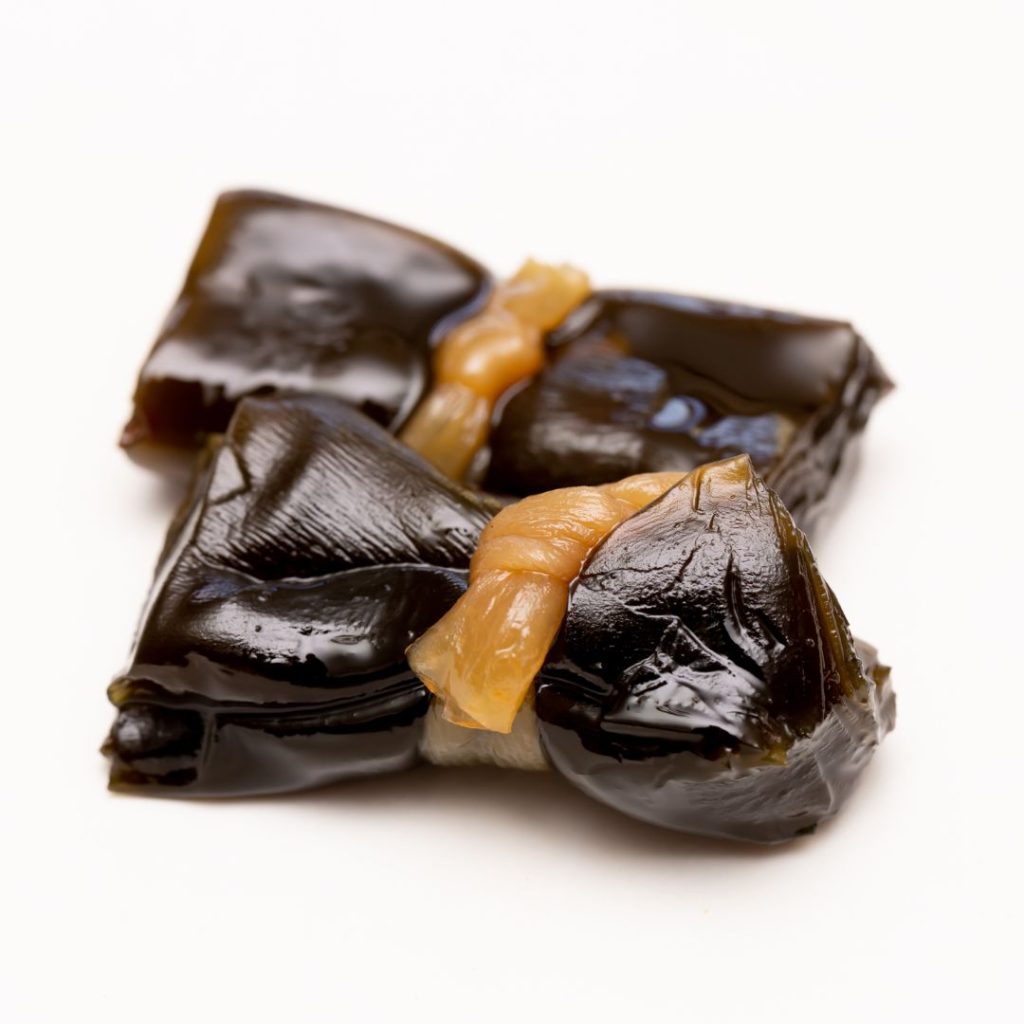
昆布巻き (Kombumaki) – Rolled Kelp
A play on words, as “kombu” sounds like 喜ぶ (yorokobu), meaning joy. Kombumaki conveys wishes for happiness.
Other Popular New Year Dishes
While Osechi Ryori takes center stage, other traditional dishes are also enjoyed during New Year’s:
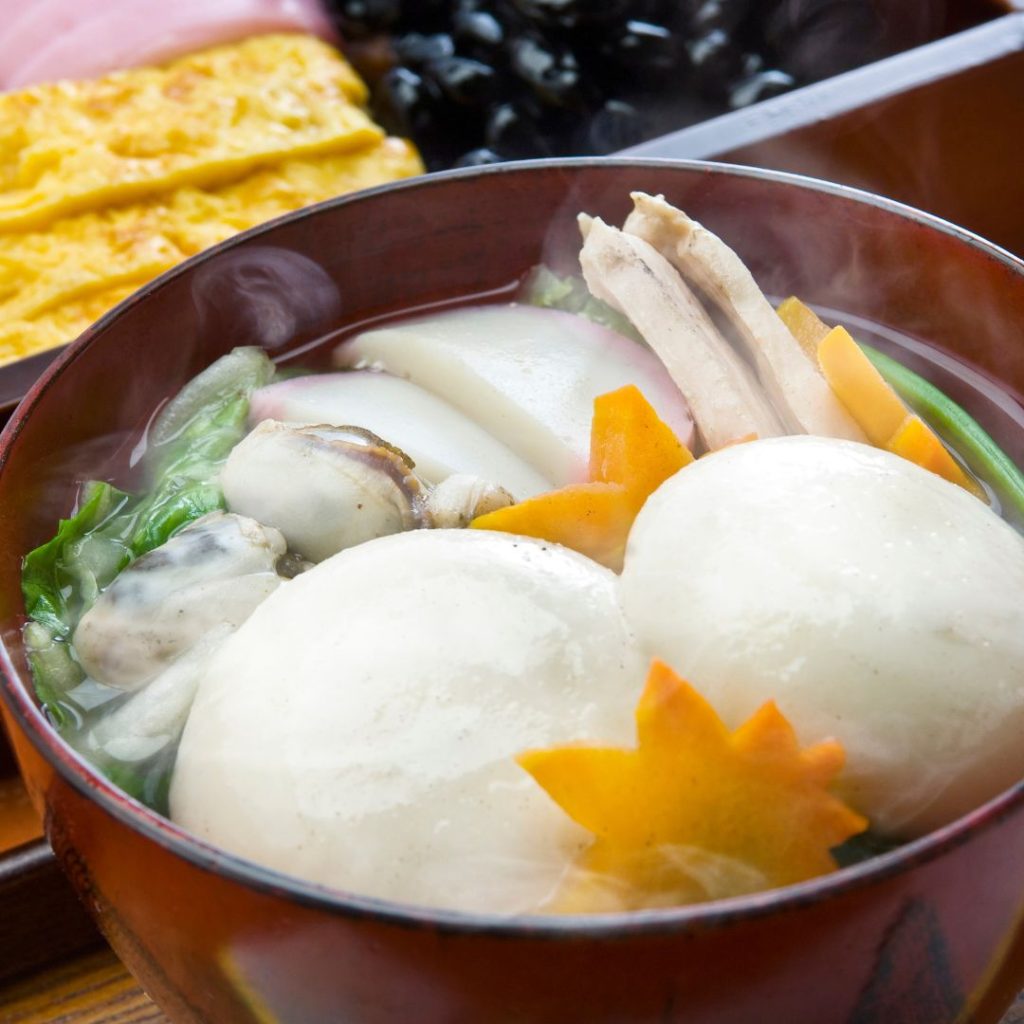
お雑煮 (Ozooni)
A soup made with mochi, vegetables, and sometimes meat or fish, which varies by region. It symbolizes strength and unity as families share it together.
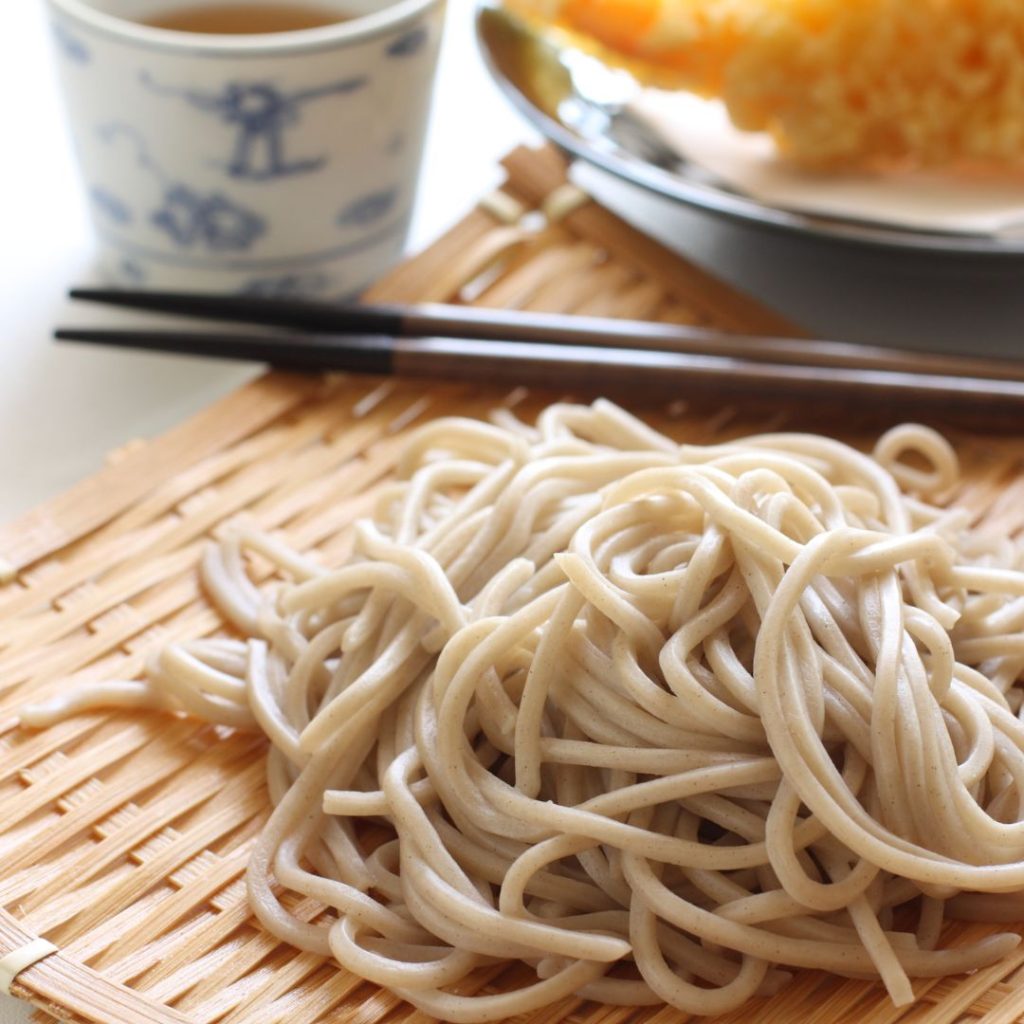
年越しそば (Toshikoshi Soba)
Eaten on New Year’s Eve, this buckwheat noodle dish signifies long life and resilience, as the noodles are long and unbroken.
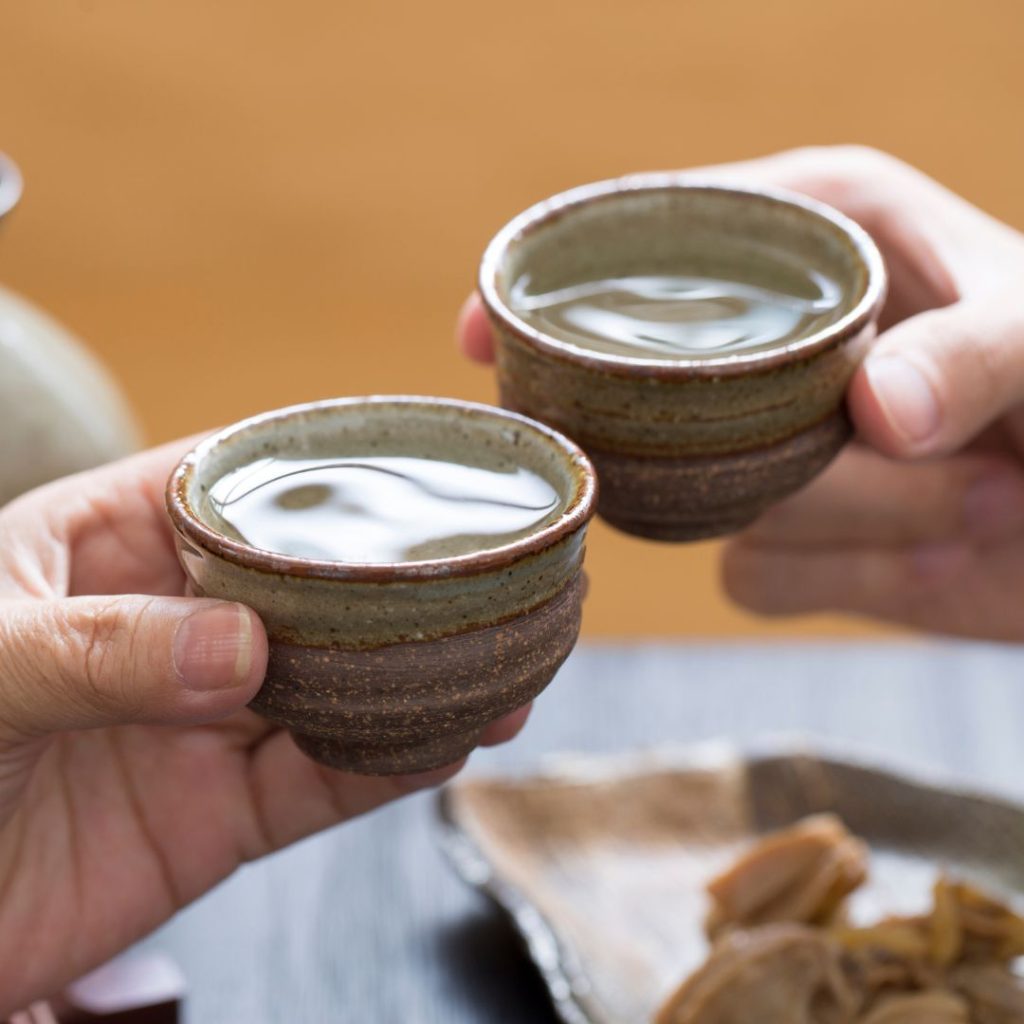
日本酒 (Nihonshu)
Sake, often served during New Year’s, is sometimes infused with gold flakes in a ceremonial drink called 屠蘇 (Toso), symbolizing health and good fortune.
Modern Osechi Trends
While traditional Osechi Ryori remains beloved, modern versions have emerged to cater to changing tastes and lifestyles. Some families now include Western dishes, and convenience stores and supermarkets offer ready-made osechi sets, making it easier than ever to partake in this tradition.
How to Enjoy Osechi Ryori
Osechi is typically enjoyed with family during the first three days of the New Year. As you savor each dish, reflect on its symbolism and the hopes it represents for the year ahead.
Embrace the Tradition
Osechi Ryori is more than just a feast; it’s a celebration of tradition, gratitude, and hope. Whether you prepare it yourself, order a set, or simply try a few symbolic dishes, participating in this beautiful tradition is a meaningful way to welcome the New Year.
How will you incorporate Osechi Ryori into your New Year celebrations? Share your experiences and favorite dishes in the comments!
NihongoNana helps you discover Japanese culture and language through meaningful traditions. Follow us for more insights into Japan’s rich heritage and tips to enhance your learning journey!
If you want to learn Japanese, improve your skills, or connect with native speakers and other learners, we can help. We offer one-on-one lessons, a supportive community, and on demand courses.
Website: nihongonana.com
Email: support@nihongonana.com
✅Book 1-on-1 lessons: https://nihongonana.com/lessons/
✅Join our community: https://nihongonana.com/community/
✅Access courses: https://nihongonana.com/courses/





Leave Comment